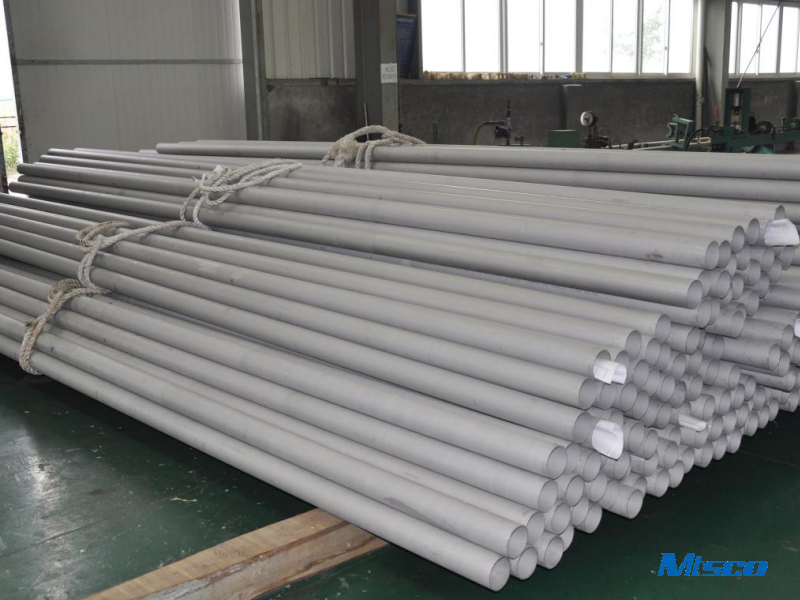Introduction to Alloy 718 and Inconel 718
In the realm of high-performance materials, Alloy 718 pipe and Inconel 718 frequently come up in discussions. As key players in the metallurgy industry, these nickel-chromium materials are notable for their unique properties, including high strength, corrosion resistance, and suitability for a broad range of temperatures. The question arises: Is there a distinction between Alloy 718 and Inconel 718, or are they essentially the same material under different names?
Composition and Chemical Properties
● Key Elements in Alloy 718/Inconel 718
The composition of Alloy 718, also known as Inconel 718, primarily involves nickel (52.5%), chromium (19%), and other elements like iron (18.5%), niobium, tantalum, molybdenum, titanium, and aluminum. The specific combination of these elements imparts the alloy with its remarkable characteristics.
● Differences in Chemical Composition (If Any)
Given that both terms, Alloy 718 and Inconel 718, often refer to the same material, there are typically no differences in their chemical composition. The naming convention usually depends on the manufacturer or supplier.
Mechanical Properties and Strength
● High Strength Qualities of Alloy 718
One of the standout features of Alloy 718 is its high strength. This attribute is particularly crucial in applications involving extreme conditions, such as aerospace and oil and gas industries.
● Analysis of Tensile, Yield, and Fatigue Strength
Alloy 718 showcases excellent tensile, yield, and fatigue strength. These properties ensure that components made from this material can withstand substantial stress and strain without compromising structural integrity.
Heat Treatment Processes
● Importance of Heat Treatment in Alloy 718/Inconel 718
Heat treatment plays a pivotal role in enhancing the properties of Alloy 718. Through processes such as annealing and aging, the material’s mechanical strength and resistance to various forms of degradation can significantly improve.
● Typical Heat Treatment Methods
Common heat treatment methods for Alloy 718 include solution annealing followed by aging. This two-step process helps achieve the desirable mechanical properties required for demanding applications.
Applications in Aerospace Industry
● Use of Alloy 718 in Aerospace Components
Alloy 718 is extensively used in the aerospace sector, particularly in the manufacture of gas turbine components, jet engines, and spacecraft. The material’s high strength and ability to withstand high temperatures make it suitable for these critical applications.
● Benefits in High-Stress Environments
In aerospace applications, materials face extreme conditions, including high stress and varying temperatures. Alloy 718’s exceptional properties make it ideal for such environments, where performance and reliability are paramount.
Applications in Oil and Gas Industry
● Utilization in Drilling and Extraction Equipment
The oil and gas industry relies on Alloy 718 for the fabrication of components like down-hole shafting and strength bolting. Its resistance to high pressure and corrosive environments ensures long-term performance and safety.
● Resistance to Corrosion and High Temperature
Alloy 718’s resistance to corrosion and high temperatures makes it suitable for use in harsh environments typical in oil and gas extraction and processing.
Corrosion Resistance Characteristics
● Corrosion Resistance Properties
Alloy 718, known for its outstanding corrosion resistance, performs well in harsh environments. This property is crucial for applications where exposure to corrosive substances is a constant threat.
● Suitability for Harsh Environments
The material’s suitability for harsh environments extends its utility to various industries, including nuclear power, marine, and chemical processing, where robust and reliable materials are necessary.
Manufacturing and Fabrication Techniques
● Common Fabrication Methods
Alloy 718 can be fabricated using various methods, including machining, welding, and hot/cold working. Its workability makes it a favorite among manufacturers for creating intricate shapes and complex parts.
● Challenges in Machining and Welding
Despite its advantageous properties, Alloy 718 presents certain challenges in machining and welding due to its high strength and toughness. Specialized techniques and tools are often required to handle these challenges effectively.
Comparison with Other Nickel Alloys
● How Alloy 718 Compares to Other Nickel Alloys
When compared to other nickel alloys, Alloy 718 stands out due to its balanced properties—high strength, excellent corrosion resistance, and good workability. These attributes make it more versatile than some other nickel-based materials.
● Pros and Cons of Using Alloy 718
The primary advantages of using Alloy 718 include its mechanical and corrosion resistance properties. However, its high cost and the complexity of fabrication can be considered potential drawbacks.
Conclusion: Are They the Same?
● Recap of Key Points
In essence, Alloy 718 and Inconel 718 are generally the same material, known for their high strength, resistance to corrosion and oxidation, and excellent mechanical properties.
● Final Statement on Whether Alloy 718 and Inconel 718 Are Identical
While there may be slight variations in naming conventions based on manufacturers, Alloy 718 and Inconel 718 refer to the same high-performance nickel-chromium material. They are interchangeably used in various industries for critical applications due to their shared properties.
Company Introduction: Mtsco
MTSCO is a factory complex consisting of multiple factories built or invested by MT Holding Group. Jiaxing MT Stainless Steel Co., Ltd (MTSCO) specializes in the R&D and smelting of superalloy and corrosion-resistant alloy products. These products are designed for use in harsh environments like strong acid, high temperature, and high pressure. MTSCO’s offerings include a wide range of alloys such as Alloy 625, 600, 800, and more, covering pipes, plates, strips, rods, wires, fittings, and flanges, with an annual output of high-nickel alloy seamless pipes reaching up to 3,000 tons. MTSCO employs advanced inspection equipment and digital management systems to ensure the highest quality standards, exporting products to more than 25 countries.


